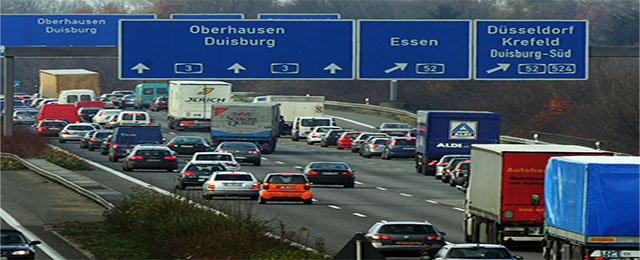Despite the domestic demand is expected to contribute to growth more than in the past, the international organization chaired by Christine Lagarde still sees some important risks: the faltering growth in the rest of the euro area; the slowdown in the emerging countries; or an escalation in geopolitical tensions surrounding Ukraine. Therefore, the IMF has recommended Germany to carry out stronger public investment, particularly in the transport infrastructure. “Higher public and private investment in Germany would raise medium-term output, reduce the large and persistent current account surplus, and generate appreciable positive demand spillovers to the rest of the euro area, thus helping rebalancing within the monetary union”, said Washington-based IMF in its last Article IV Consultation conclusions.
Dr. Ferdinand Fichtner, head of department of forecasting and economic policy at the German Institute of Economic Research (DIW), agrees with the organization on the idea. “It’s not about a stimulus program, the idea should be to improve the environment for production in Germany and what it needs is for example higher infrastructure investment, in education, in those fields where you know that if the government invests, it increases the productivity of the private sector,” said the expert from the DIW.
Given its healthy public sector balance sheet, Germany could use the window of opportunity provided by very low or even negative interest rates to invest in future oriented projects. However, Merkel party ally and Finance Minister Wolfgang Schäube insists on the need to continue with the budget consolidation. “I can’t stand these debates any longer that one has to choose between austerity policies and growth policies,” he said in a recent speech during a banking conference in Berlin.
“The thing is that we have high government expenditures, it’s just not for investment, it’s more for consumption,” explained Dr. Fichtner. “For example, we have seen recently substantial changes to the pension system, which are extremely costly, but it’s not something that improves the production capacity of the German economy. So, why they don’t do it, I think it’s always more attractive for politicians to make the situation better for the current voters, for the people who are currently living, than making the situation better in the future, which is what you do if you invest in infrastructure, for example, or in education. The effects of these investments arrive in 20 years possibly, and it’s always more interesting and more attractive for a government to spend money on those people who are voting right now, which is what the German government is doing.”
At the same time that more public investment would mean a raise of potential growth in Germany, it would also mean a way to help rebalancing within the monetary union through more domestic demand, which is what the IMF, the EU Commission and other experts have been demanding during the last months. Germany is the main trade partner for most of Eurozone countries, so “if there are more investment in Germany, it’s quite likely that wages also increase, because workers will get more productive and if wages increase stronger in Germany, it means that consumption will grow stronger and if consumption goes up, this implies that imports go up and German imports are our neighbour’s exports and exports of Spain, France and Italy is exactly what these countries need right now,” concluded Ferdinand Fichtner.






Be the first to comment on "IMF: More German investment to strengthen the EZ"